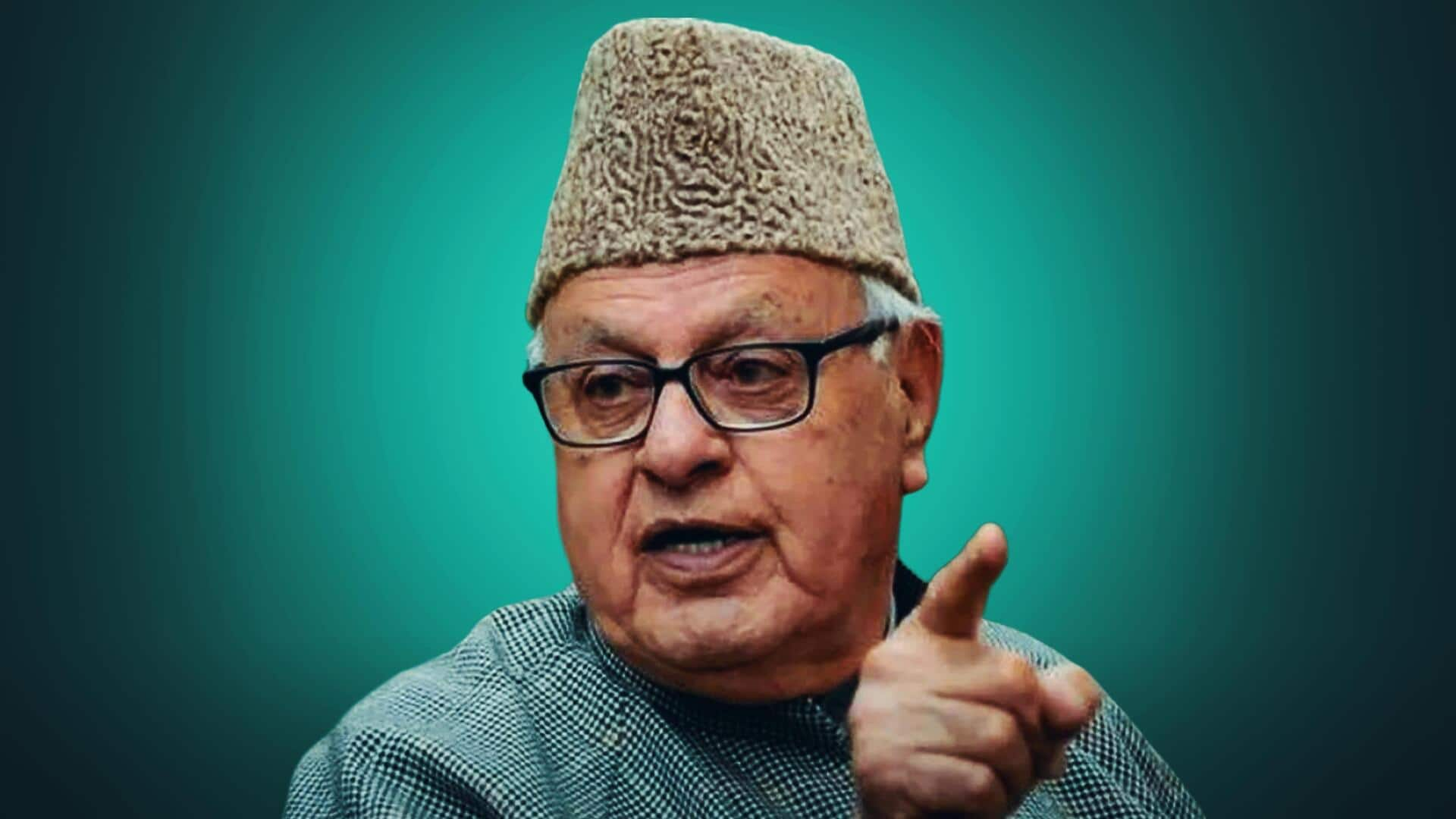
'How did J&K progress under Article 370?': Farooq counters PM
What's the story
Farooq Abdullah on Thursday dismissed Prime Minister Narendra Modi's claims of dynastic politics in Jammu and Kashmir (J&K) and said that the erstwhile state made progress while Article 370 was in place.
Abdullah—who was J&K chief minister three times—questioned, "If Article 370 was this bad, how did J&K ever make progress?"
His remarks came in an apparent response to PM Modi, who said that Article 370 "kept J&K in chain for the benefit of a few families."
Context
Why does this story matter?
PM Modi on Thursday made his maiden visit to Srinagar since the scrapping of Article 370, which granted a special status to the former state.
Launching a scathing attack on Congress and its allies, he questioned, "Did Jammu and Kashmir benefit from Article 370, or were only a few political families taking advantage of it?"
Abdullah, who is the president of J&K National Conference, has blatantly opposed the revocation of Article 370, underscoring that the decision had only downgraded J&K.
Ghulam Nabi Azad
Abdullah cites Ghulam Nabi Azad's Rajya Sabha speech
Abdullah cited a speech by then Leader of Opposition Ghulam Nabi Azad in the Rajya Sabha, where he compared the development of Gujarat and J&K while Article 370 was still in effect.
He argued, "Now, if Article 370 and nepotism are responsible, then how did we make that progress? It is the people's rule, I lost the election as a chief minister. So, where is the dynastic rule?"
He also criticized PM Modi for attacking dynastic rule in his speeches.
Education
Scrapping Article 370 made education expensive: Abdullah
The former chief minister highlighted that since the revocation of Article 370, education has become more costly in Jammu and Kashmir.
He noted that education from primary schools to universities used to be free before the repeal.
"Today, education is only free up to the 14th class. In the universities, you have to pay now," said Abdullah.
He called for an honest commission to compare the situation before and after the abrogation of Article 370.
Article 370
Explained: Abrogation of Article 370
In August 2019, the Bharatiya Janata Party-led Centre revoked Article 370.
Following the abrogation, J&K was divided into the union territories of J&K and Ladakh while under the president's rule.
Last December, the Supreme Court upheld the Union government's decision, stating that Article 370 was an "interim arrangement due to war conditions in the former state."
Electoral push
PM Modi's recent visit to Jammu
PM Modi's Kashmir's visit came less than a month after he visited Jammu and credited the abrogation of Article 370 for speedy development across the union territory.
Laying the groundwork for projects worth Rs. 32,000 crore, he said, "Modi will help you realize the dreams you had for 70 years."
The PM's speech indicated that he has kickstarted the 2024 election campaign in Jammu.